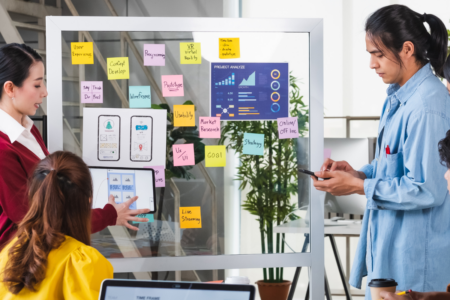Social media has become an integral part of everyday life for many people around the world.
Platforms like Facebook, Twitter now known as X, Instagram, and LinkedIn allow users to create networks, share information, and communicate with each other instantly.
This connected online environment also provides new opportunities for industries like healthcare.
An increasing number of healthcare professionals and organizations are now leveraging social media for various purposes, including continuing education.
This article will explore the impact that social media is having on continuing education for healthcare providers.
Continuing education is a critical component in healthcare fields to ensure that professionals stay up-to-date on the latest standards, techniques, and research in their industry.
It enables them to provide the best possible care to patients by fine-tuning their knowledge and skills over the course of their career.
Traditionally, continuing education involved in-person conferences, seminars, and training programs.
However, social media presents a convenient and accessible alternative for healthcare professionals to engage in ongoing learning and development.
This article will analyze the emerging role that social media platforms are playing as an educational resource for nurses, physicians, social workers, and other healthcare staff.
It will also discuss the benefits and potential drawbacks of integrating social media into continuing education for these professionals.
The insights provided will spotlight the impact of social media on the future of healthcare education.
Social Media and Healthcare Professionals
Social media has become an integral part of the personal and professional lives of many healthcare providers.

According to a survey by the American Nurses Association, 82% of nurses use social media for personal reasons, while 42% use it for professional purposes.
These online platforms offer new opportunities for convenient, interactive continuing education and training.
One major advantage of social media for healthcare professionals is the ability to access on-demand education content.
Platforms like YouTube and LinkedIn Learning have a vast library of instructional videos, lectures, and courses on clinical techniques, new research, equipment use, and more.
Healthcare workers can watch and learn at their convenience instead of having to attend seminars or training sessions.
For example, there are many video tutorials available to supplement BLS renewal online instead of taking time off to attend an in-person skills evaluation.
The flexibility social media provides is beneficial for busy medical staff.
In addition to on-demand learning, social media facilitates collaboration between healthcare professionals.
Sites like X and online forums enable nurses, doctors, and other experts to interact, exchange insights, and discuss challenging cases.
This crowdsourced approach to problem-solving helps providers enhance their clinical decision-making by accessing the latest approaches and research.
Overall, the connectivity of social media expands continuing education opportunities for healthcare staff through flexible access and valuable collaboration.
Social Media and Patient Education
In addition to healthcare professionals, patients are also increasingly using social media to access health information and education.
Studies show that social media can be an effective platform for improving patients’ access to resources that enhance their knowledge and experience.
One major advantage of social media for patients is the ability to connect with online communities relevant to their health conditions.
There are thousands of condition-specific groups on Facebook, Reddit, and other sites where patients can share personal experiences, seek advice, and provide support to peers going through similar struggles.
These virtual communities create a sense of belonging and reduce feelings of isolation.
Social media also enables patients to more actively participate in their own care.
Platforms like PatientsLikeMe allow people to track symptoms, compare treatments, and learn from aggregated patient data.
By reviewing treatment options and connecting with others, patients can collaborate with their doctors to make more informed choices. Studies show that access to health data empowers patients and improves outcomes.
However, risks like misinformation and privacy breaches remain a concern on social platforms.
Healthcare providers play an important role in directing patients to credible resources and helping them safely leverage social media for optimum education.
Overall though, these sites continue to provide new avenues for patients to become informed advocates through virtual communities and shared data.

Social Media and Public Health
Public health organizations are leveraging social media as an important educational and outreach platform to promote health literacy and awareness.
Studies show numerous opportunities exist for social media to inform the public and advance health outcomes on a broader scale.
A major advantage of social media for public health is the ability to understand population needs and attitudes.
Analysis of social data provides insights into health beliefs, misconceptions, behavior trends and more.
Public health professionals can use these inputs to better target interventions and campaigns.
For example, social listening during the COVID-19 pandemic helped identify misinformation and knowledge gaps to address through public education.
Social media also enables interactive, engaging health promotion. Platforms like TikTok and Instagram that have strong youth engagement are being used creatively to spread awareness.
Social channels allow content to be widely adapted and shared to expand reach. Interactive formats like Facebook Live sessions and Reddit AMAs also foster public education and connection.
However, the risks of perpetuating harmful attitudes and misinformation exist on social media.
Public health organizations must provide appropriate context and credible sources in their educational messaging.
Overall though, social media presents a promising channel for promoting health literacy if utilized responsibly.
Conclusion
Social media has rapidly changed the education landscape for healthcare professionals, patients, and public health organizations alike.
These digital platforms offer new capabilities for convenient, interactive learning through online communities and a wealth of on-demand resources.
Studies show that social media improves knowledge sharing and empowers both providers and patients to make informed decisions.
It also allows public health organizations to understand populations and spread credible information effectively.
However, risks like misinformation and breaches of privacy persist. Healthcare providers play a vital role in directing people to reliable sources and modeling responsible social media use.
As utilization grows, more research is still needed to establish best practices for integrating these technologies into healthcare education safely and ethically.
But the potential of social media for keeping both professionals and the public informed about the latest health topics remains promising.
Moving forward, social media is expected to become even more entrenched in the continuing education landscape across healthcare industries.
Being proactive about understanding its impact and harnessing its capabilities responsibly will be key for both providers and patients alike.
But if utilized effectively, social media can undoubtedly improve outcomes by empowering a new generation of informed, connected, and savvy healthcare consumers.








